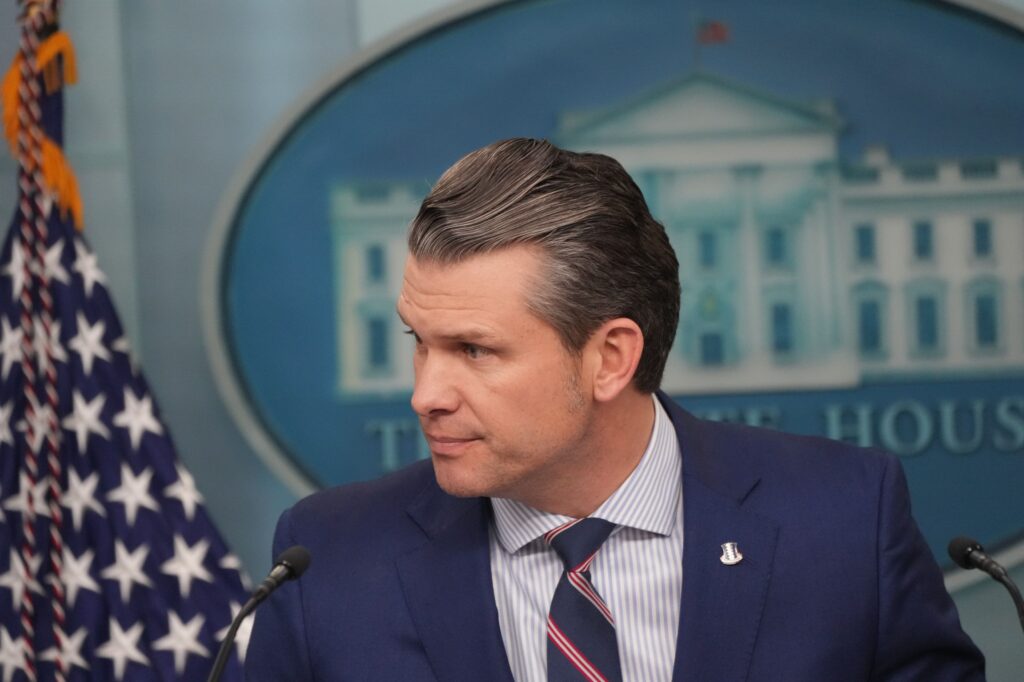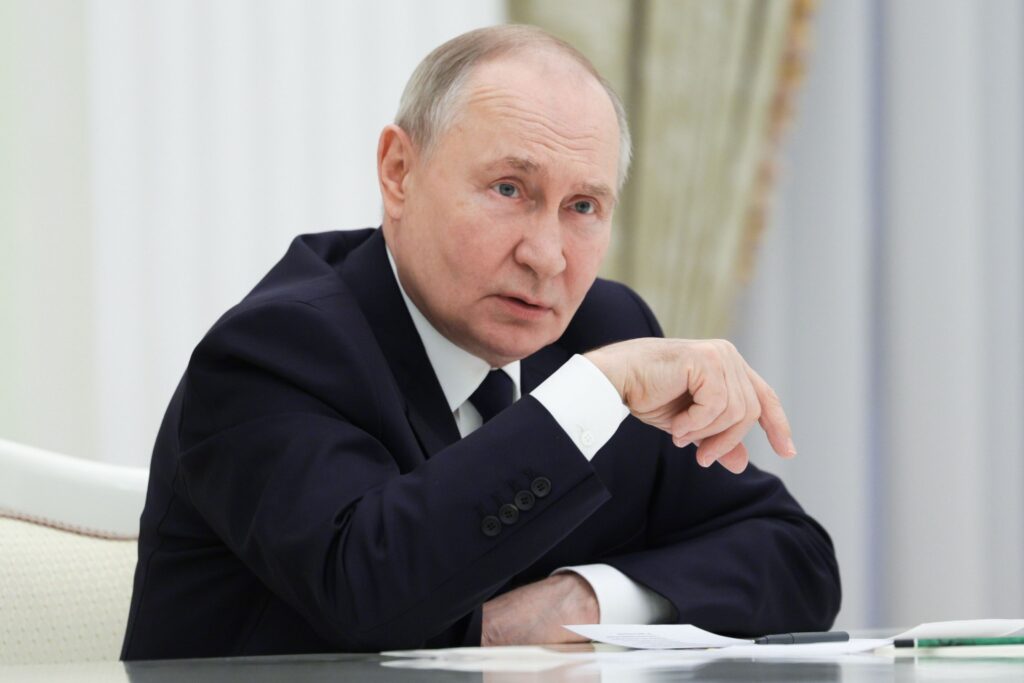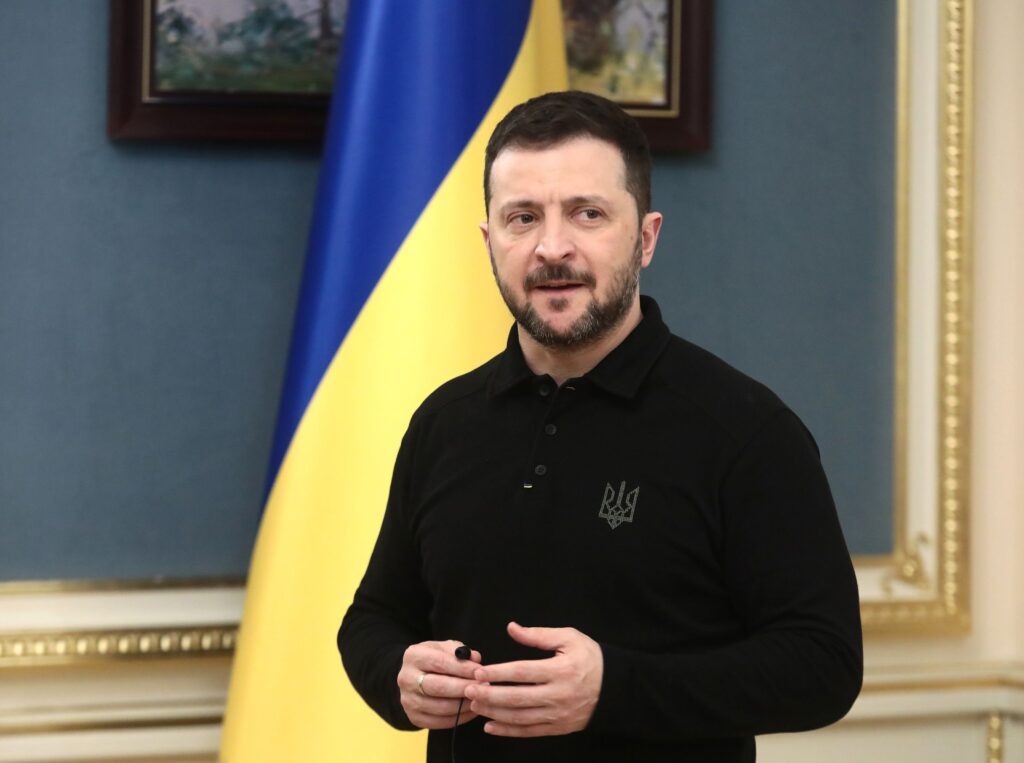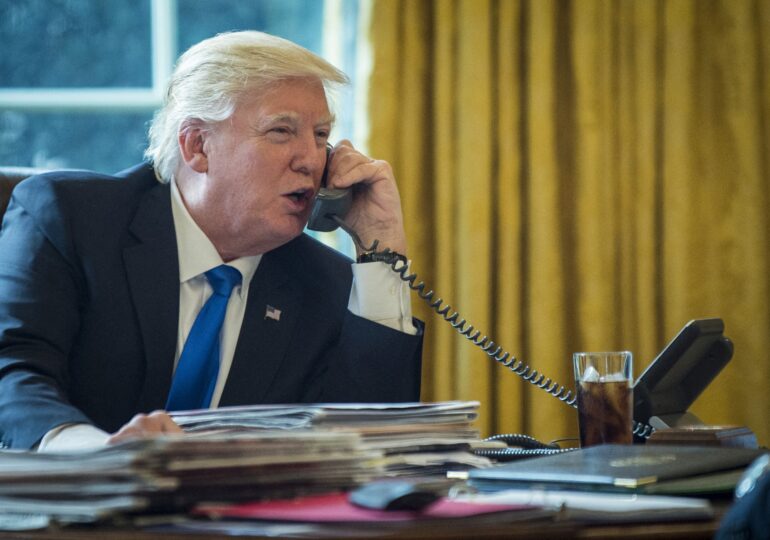On Friday, February 14, the annual security conference will begin in Munich, Germany, where, for the first time since Donald Trump’s return to the White House, there will be concrete discussions about the peace plan between Russia and Ukraine.
Also, on Wednesday, the first official phone call between the American president and Vladimir Putin took place, in which, as usual, Donald Trump praised the Russian leader, promising to visit Russia.
In the electoral campaign, the current US president repeatedly announced that one of his main foreign policy objectives is to achieve a ceasefire on the Ukrainian front following Russia’s invasion.
Trump emphasized that he has the leverage to bring Vladimir Putin and Volodymyr Zelensky to the negotiating table, claiming that he will end the conflict within 24 hours.
"I just had a long and very productive phone call with the President of Russia, Vladimir Putin. We discussed Ukraine, the Middle East, energy, artificial intelligence, the power of the dollar, and various other subjects. We both reflected on the great history of our nations and the fact that we fought together so successfully in World War II, remembering that Russia lost tens of millions of people, and we, too, had very large losses!"
Donald Trump, reaction after the phone conversation with Vladimir Putin
He never gave details on how he would do this, but JD Vance, the Vice President of the US, spoke about the new vision of the White House, which involves Ukraine relinquishing some of the territories seized by Russia, indefinitely delaying Ukraine's NATO membership, and providing security guarantees for the neighboring country. If Russia rejects the conditions, the arming of Kiev's forces could continue and even intensify.
The plan proposed by the Trump-Vance duo is a simplistic one, based solely on the US's influence over Moscow and Kiev.
Kremlin Betting on Ukraine's Concession
"We must start by acknowledging that returning to Ukraine's pre-2014 borders is an unrealistic goal... The US does not believe that Ukraine's accession to NATO is a realistic outcome of a negotiated solution," stated Pete Hegseth, the new Secretary of Defense, at the Ukraine Defense Contact Group meeting in Brussels.

The American official's position confirms Donald Trump's peace vision but has been met with significant reservations both in Ukraine and Europe.
It is even more interesting that Vladimir Putin, through Kremlin officials, has also rejected the US-proposed plan. Apart from the interest shown in resuming contacts with the White House, the Russian leader has had no reaction regarding possible negotiations with Ukraine and has shown no interest in ceasefire.
At the Kremlin, discussions are contrary to any negotiation, in a context where Putin and his close circle believe they have the initiative on the front, advancing even with numerous human and armament losses, convinced that Ukraine will yield.
Peace, Putin's Greatest Enemy
The most significant obstacle to peace is the political situation of the Russian president. War helps Putin. It provides him with a universal enemy, a country he can blame for the failures of his administration, gives him the opportunity to control all layers of society and annihilate any form of opposition, as well as the chance to have public support due to the fear caused by the bloody conflict.
"Putin needs a war to appear strong in Russia. This war is about a dictator desperate to remain in power," said Bill Browder, a financial expert, former investor in Russia, in an interview.
Peace is Vladimir Putin's greatest enemy. The reporting of the Kremlin leader on the conflict has not been understood by Donald Trump, although several experts have explained over time the reasons behind the invasion that took place three years ago.

A democratic, free Ukraine, with periodic elections and out of the Kremlin's influence, becomes a prosperous country that highlights the weaknesses of Putin's dictatorial regime, the fact that a president surrounded by oligarchs controls the country's immense resources, keeping it in poverty.
Europe Has Changed
Volodymyr Zelensky has sent enough political signals that he is willing to make compromises, even territorial ones, to achieve a ceasefire, requesting security guarantees and military investments so that Russia does not attack again after a period of time.
"Moscow is ready for discussions. But on its terms. If we set aside diplomatic language, essentially, this is called an ultimatum," explained Steve Rosenberg, the BBC correspondent in Russia, analyzing statements from Kremlin officials.
At the upcoming conference in Munich in the following days, an important meeting will take place between Vice President JD Vance and Volodymyr Zelensky.

There, the US official will convey the message of the White House, listing the conditions outlined by Secretary of State Hegseth, and if there are no last-minute changes, the meeting will mark a step back by Washington regarding support for Ukraine.
"I just spoke with Donald Trump. We have an ongoing conversation about the possibilities of achieving peace. About our desire to work together as a team. About our technological capabilities, including drone production and other modern technologies. Thank you to President Trump for his interest in what we can do together."
Volodymyr Zelensky, reaction after the phone conversation with Donald Trump
But something has changed. European states are more prepared to fill the potential security void left by the Americans than they were three years ago when the war began.
In 2024, they spent 450 billion dollars on defense, while Russia, with a war economy, reached 100 billion.
With the support of the former US administration, autonomous mechanisms for funding, production, and transfer of military equipment to Ukraine have been created in NATO and Europe.
Trump, Caught in His Own Strategy Trap
A possible step back by Washington will be a loss for Ukraine and the European Union, but the decision of the new administration must be respected just as Europe's decision to defend itself against Russian aggression must be respected.
"... in a speech delivered in Brussels in front of the Defense Contact Group of the Ukraine Defense Ministers, chaired by British Minister John Healey, Hegseth softened his language - a day before attending his first NATO Defense Ministers Summit," reported journalist Dan Sabbagh in an article for the British newspaper The Guardian.
"Hegseth argued that the US is shifting its military priorities towards national defense and deterring China and called on NATO's European members to increase defense budgets to 5% of GDP to better defend the continent," the source added.
Both JD Vance and Pete Hegseth are surprised that European states, even if they will not increase their defense budgets to 5% of GDP, are open to doing so substantially, and that a potential US step back is no longer seen on the old continent as a global catastrophe, with solutions already being developed to continue support for Ukraine.
Even more interesting is the fact that Vladimir Putin's silence regarding peace negotiations is a sign that this has been understood at the Kremlin, and Trump's promise to quickly bring peace is viewed with skepticism.
From the perspective of the Munich conference, based on preliminary discussions, the strategy of European leaders and that of Volodymyr Zelensky is to treat American officials with deference, showing how important their role is in global security, and presenting alternative solutions in case of a US withdrawal from this role, as decided by Donald Trump.

